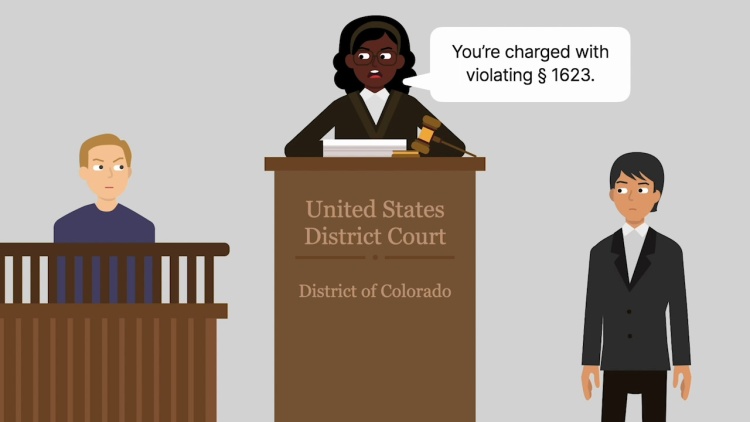Dunn v. United States
United States Supreme Court
442 U.S. 100 (1979)
- Written by Robert Cane, JD
Facts
Robert Dunn (defendant) provided testimony to a grand jury regarding Phillip Musgrave and illicit drug activity at a prison. A grand jury indicted Musgrave for a drug-related felony. Later, on September 30, 1976, Dunn recanted his testimony in a sworn statement while meeting with Musgrave’s attorney, Michael Canges. As a result, the government (plaintiff) reduced Musgrave’s charges to a misdemeanor. Subsequently, Dunn was indicted for making false statements under 18 U.S.C. § 1623. The indictment indicated that the government intended to establish that Dunn’s statements made to Canges on September 30 were inconsistent with his original grand-jury testimony. Dunn moved for acquittal, arguing that his September 30 statement was not made in a proceeding ancillary to a federal court or grand jury. The district court denied the motion. A jury convicted Dunn on several counts of making false declarations. Dunn appealed to the court of appeals, which affirmed his convictions. However, the court found that the September 30 statement was not sufficient for a false-declarations violation but still affirmed the reasoning that Dunn adopted his September statement in an evidentiary hearing during trial on October 21. The court found a permissible variance between the charges of the indictment, which centered on Dunn’s September statement and Dunn’s testimony during the October evidentiary hearing, which was actually an ancillary proceeding covered by § 1623. Dunn appealed.
Rule of Law
Issue
Holding and Reasoning (Marshall, J.)
What to do next…
Here's why 899,000 law students have relied on our case briefs:
- Written by law professors and practitioners, not other law students. 47,000 briefs, keyed to 994 casebooks. Top-notch customer support.
- The right amount of information, includes the facts, issues, rule of law, holding and reasoning, and any concurrences and dissents.
- Access in your classes, works on your mobile and tablet. Massive library of related video lessons and high quality multiple-choice questions.
- Easy to use, uniform format for every case brief. Written in plain English, not in legalese. Our briefs summarize and simplify; they don’t just repeat the court’s language.





